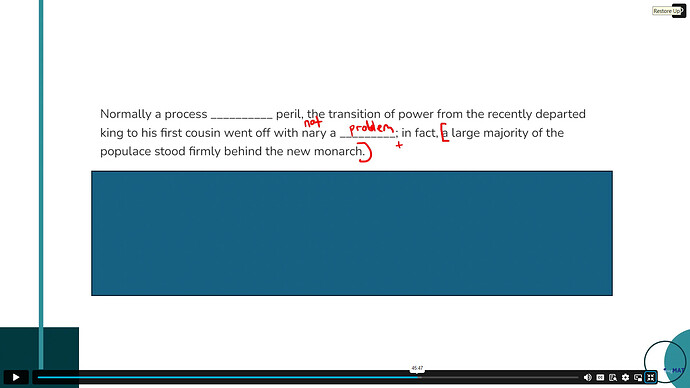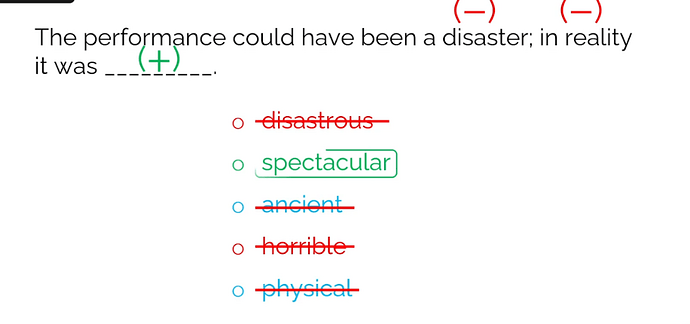“In fact” unfortunately has two functions. The first is to emphasize the point of the previous sentence and the second is to offer a contrast. In both cases, however, “in fact” represents something that is surprising. Surprises are usually contrasts, against our expectations, but sometimes they are actually “extreme” things on the other end.
Also, it depends on how you look at the phrase “in fact.” Look at the example below.
He isn’t poor; in fact, he’s quite rich.
In this case, “in fact” could serve as a contrast between rich and poor. However, if you consider the entire idea of “he isn’t poor,” notice how “he’s quite rich” actually supports it.
is ‘in reality’ another such word?
How do we find out the function of ‘in fact’ in the sentence? Is it by reading the sentence and finding out if the sentence made sense with our guess for the blank?
@gregmat
I would say “in reality” presents a contrast far more often. Yeah, you would just use the context. Or, ask yourself, which “idea” you’re referring to. Like I said, if you refer only to the word “poor” in the above example, it’s a contrast. If you refer to the whole idea (He isn’t poor), it’s a support.
Something similar is being done here right? that’s why i thought both phrases would actually support both ideas.
@gregmat

